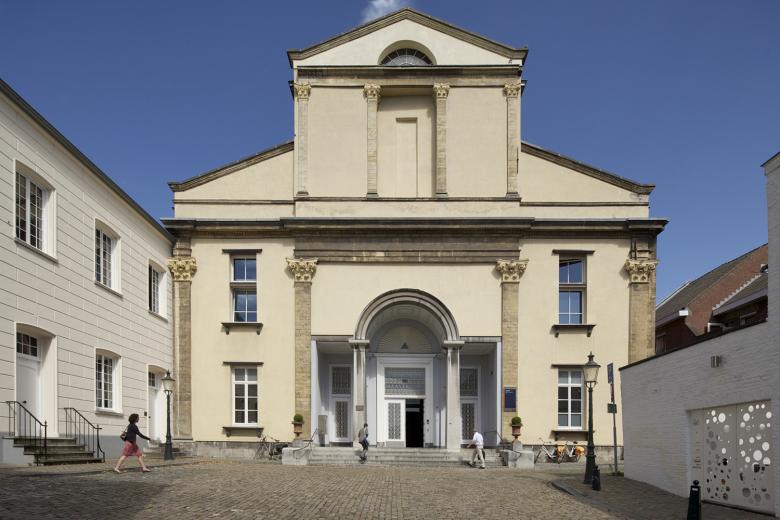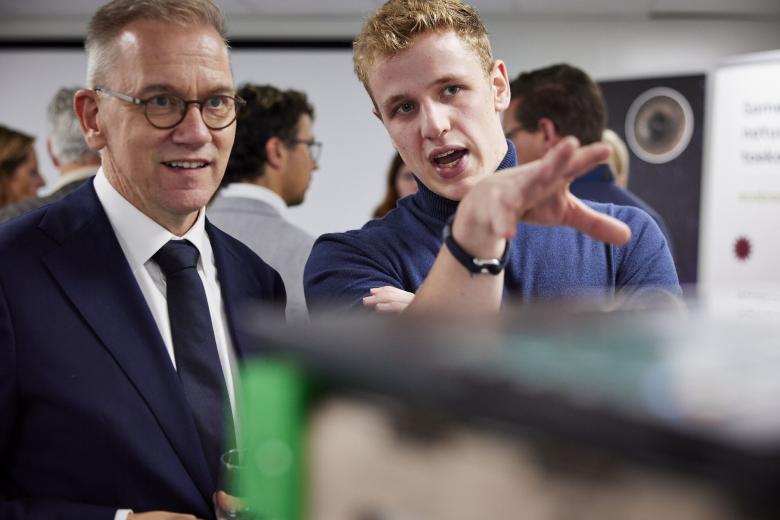Divorced, or not divorced? Marital captivity in the Netherlands
Imagine you have a religious marriage and want to divorce, but cannot. This problem is becoming increasingly common within religious communities (Jewish, Muslim and Christian), especially among migrants. The first expert meeting on this issue took place on Tuesday 28 June at Atria, a knowledge institute for emancipation and women's history. On Thursday 30 June, the fact sheet 'Divorced, or not divorced? Marital captivity in the Netherlands' was published.
The break-up of a (marital) relationship is often a complicated, emotional and sometimes painful process. Due to power imbalances, women in religious marriages in particular may face additional obstacles if they want to separate: - women have fewer possibilities for divorce, as this may be determined by religious or national laws, for example; - women are sometimes completely dependent upon the cooperation of their (ex-)partner; - in many religious communities there is a taboo on divorce, or the negative status of 'divorced woman' deters women from initiating divorce proceedings; - for many women, divorce has serious financial consequences: in exchange for a divorce, they must sometimes bear the costs incurred or renounce financial rights (bridal gift, right to alimony, property).
Complexity of marital captivity
Situations of marital captivity are varied and sometimes complex, especially if there are causes and/or effects abroad. At times it is even unclear where and how the marriage can be dissolved, for instance in the absence of (religious) authority. A combination of factors often play a role. For example, women who are (or have been) victims of domestic violence do not always have the courage to request a divorce, because they are afraid that the situation will escalate or lead to honour killings. Additionally, this can trigger arguments over custody of the children or the threat of child abduction. Other obstacles include a troubled relationship with the country of origin (refugees), or limited financial means and few connections abroad to settle the divorce. In many cases the (ex-)partner does not cooperate, and harasses and/or blackmails his (ex-)wife; wounded pride frequently plays a role in this.
Religion and law
Some religions do not recognise divorce, such as the Catholic church, which only offers the possibility to annul a marriage; this tends to be a long and sometimes costly and emotional procedure. Furthermore, the laws in the country of origin can prevent the dissolution of the marriage, or lead to unwanted consequences. In some religions, the cooperation of the husband is required for a divorce. And if a woman is divorced under civil law, the religious community in the Netherlands or in the country of origin may still consider her to be married, which limits her possibilities. For example, she may not receive communion or start a new relationship, as she would then be committing adultery. In certain countries women can lose custody of their children in a divorce, especially if they decide to remarry.
Fighting marital captivity is an important emancipation issue that demands structural solutions. During the expert meeting, starting points were mentioned which included: - harness the potential for change within the community itself, with government support; - call the problem a human rights problem and then take the Istanbul Convention as a starting point, so that the government is obliged to take action; - spread knowledge about marital captivity as widely as possible in society, so that experts, religious authorities, migrant communities and other stakeholders develop a clearer picture and more awareness of the problem.
The study was conducted by Esther van Eijk from Maastricht University as part of a multi-year multidisciplinary research project entitled 'Marital Captivity: Bridging the gap between religion and law'. Based on these research findings, Atria compiled a fact sheet.
Also read
-
UM seeks new balance between the university and student associations
Maastricht University is suspending its relationship with student associations Tragos and Circumflex until further notice. Discussions with the boards of these associations have revealed that agreements outlined in the Code of Conduct have not been upheld. Experience from recent years shows that...

-
Opportunities and concerns take centre stage during Minister Bruins' working visit to Maastricht
On Friday afternoon, 18 October, Minister Eppo Bruins (Education, Culture, and Science) paid a working visit to Maastricht. There, he was briefed by Limburg's educational institutions on current educational topics from the Education Manifesto. The minister also engaged in conversations with teachers...

-
Education minister's parliamentary letter: threat to education and region draws nearer
On 15 October, education minister Bruins informed the Netherlands House of Representatives of his plans to reduce the number of international students in the Netherlands through the Internationalisation in Balance Act (‘Wet Internationalisering in Balans’). Maastricht University has serious concerns...
